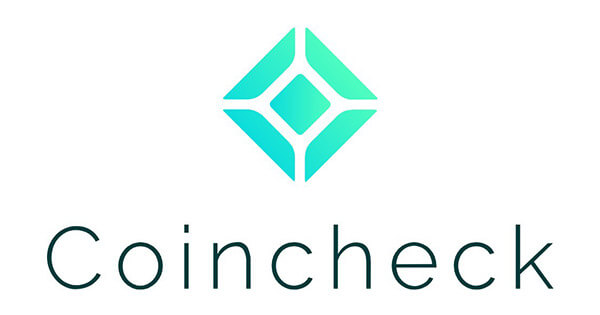 Reaction to Turbulent Week in Crypto Markets
Reaction to Turbulent Week in Crypto Markets 
Cover art/illustration via CryptoSlate. Image includes combined content which may include AI-generated content.
Cryptocurrencies spent the last 18 months becoming more prominent, popular, and valuable. At times, investor interest was so significant that major crypto exchanges couldn’t keep up with the demand for their services. In December, Kraken, a popular crypto exchange, wrote on its blog:
“The recent, unexpected explosion in demand has been overwhelming.”
As markets swelled in 2017, some investors even took the unusual step of using credit cards to purchase cryptocurrencies.
In other words, crypto investors consistently demonstrate enthusiasm and exuberance for digital currency. However, their exuberance is not unlimited, and they also show a continual intolerance for government intervention and scandal. This week had a healthy dose of each.
Mt. Gox Cashes Out
This week, one of crypto’s most egregious episodes, the theft from and subsequent closing of Mt. Gox, thrust itself back into headlines. In 2014, hackers stole nearly half a billion worth of Bitcoin from the Japan-based exchange. The theft was so severe that the exchange immediately declared bankruptcy, and a years-long legal battle ensued.
At the time, embattled Mt. Gox CEO, Mark Karpeles, told The Wall Street Journal,
“there was some weaknesses in the system, and the bitcoins have disappeared. I apologize for causing trouble.”
Lengthy bankruptcy proceedings prevented much from happening with this case, but, this week, a Mt. Gox trustee, Nobuaki Kobayashi cashed out more than $400 million in Bitcoin to repay investors. In a statement explaining the sale, Kobayashi notes,
“As a result of the consultation with the court, I considered it necessary and reasonable to sell a certain amount of BTC and BCH at this point and secure a certain amount of money for distribution resources, and thus, I sold the amount of BTC and BCH above.”
Since these funds roughly correlate with the amount of outstanding debt obligations to its users, these actions may bring a degree of closure to a lengthy legal battle that sparked outrage from investors, crypto enthusiasts, and casual observers.
Of course, Bitcoin’s price rose significantly since Mt. Gox first declared bankruptcy in 2014. As a result, Mt. Gox still has a considerable amount of Bitcoin and Bitcoin Cash in its bankruptcy holdings. Regarding these funds, Kobayashi said,
“I plan to consult with the court and determine further sale of BTC and BCC.”
Continued Trouble for Crypto Exchanges
Mt. Gox wasn’t the only crypto exchange that made headlines this week. Japanese regulators enacted severe punishments for several crypto exchanges operating in the country. The actions by Japan’s Financial Services Agency follow a $530 million hack on Coincheck Inc., a prominent crypto exchange in the country. Two other exchanges, FSHO and Bit Station, were forced to close for a month to address concerns regarding internal procedures for protecting customer assets.
Japan’s regulatory actions occurred just a week after news that U.S. government is investigating the legality of some ICOs. In many ways, their efforts are well timed. According to an analysis by The Wall Street Journal,
“Since 2014, exchange hacks have cost investors about $1.4 billion.”

Regulatory concern regarding the volatility of the initial coin offering ecosystem is reaching a fever pitch, which has contributed to the overall bearish trend the crypto market has experienced over the last week. The US Securities and Exchange Commission recently issued a number of subpoenas to firms operating initial coin offerings that may be at risk of violating US securities law in addition to releasing a statement highlighting the regulatory issues presented by crypto exchanges.
Many market observers interpret the SEC’s recent actions as indicative of a potential cryptocurrency crackdown within the United States. A recent preliminary injunction handed down Judge Jack B. Weinstein in the ongoing Commodity Futures Trading Commission vs. CabbageTech federal civil enforcement lawsuit has added fuel to the FUD fire by upholding the notion that cryptocurrencies are defined as commodities, thereby placing them under the long arm of CFTC regulation.
Skittish cryptocurrency investors and weak hands have been historically observed to react impulsively to regulatory developments — paranoia and pareidolia often exert a strong force on the cryptocurrency market, which is apparent in recent crypto market price movements.
The Impact on Crypto Markets
Although crypto markets are surging in popularity, they are still a relatively new investment vehicle. There is little precedent for appropriately responding to surprising news, so crypto markets often waver when these types of headlines arise.
For example, false news that South Korea was closing its crypto exchanges dropped markets by 10% before they recovered. Last year, similar market fluctuations occurred when China announced an outright ban on ICOs.
In this case, the crypto market cap lost nearly 25% of its value from March 5. Digital currencies appear to be recovering now. After hitting a low point of less than $8,500 on Friday afternoon, Bitcoin rose 10% by Saturday morning.
Many in the crypto industry support increased regulation and oversight. Ultimately, as crypto exchanges become more secure, investors will have a safer, more reliable experience.
Hopefully, this is the last Mt. Gox or Coincheck-like news cycle that we have to hear about. If that’s the case, these market fluctuations will just be the growing pains of a maturing market.



 Farside Investors
Farside Investors 










































































